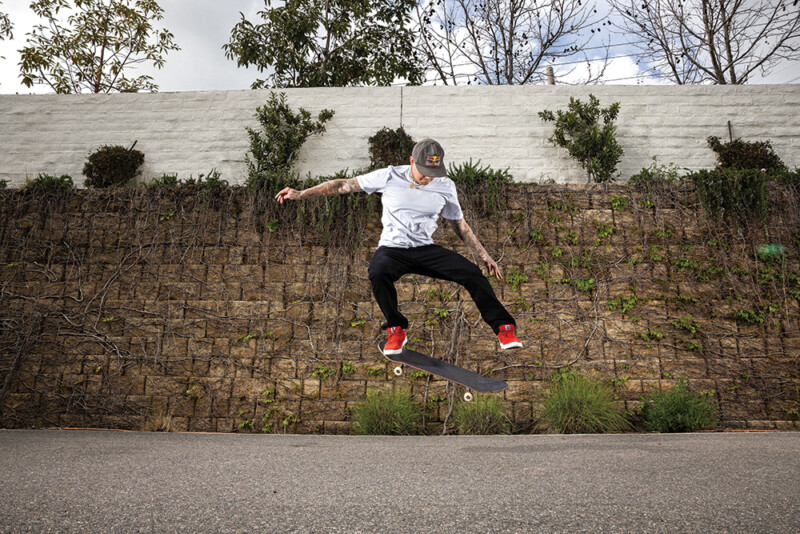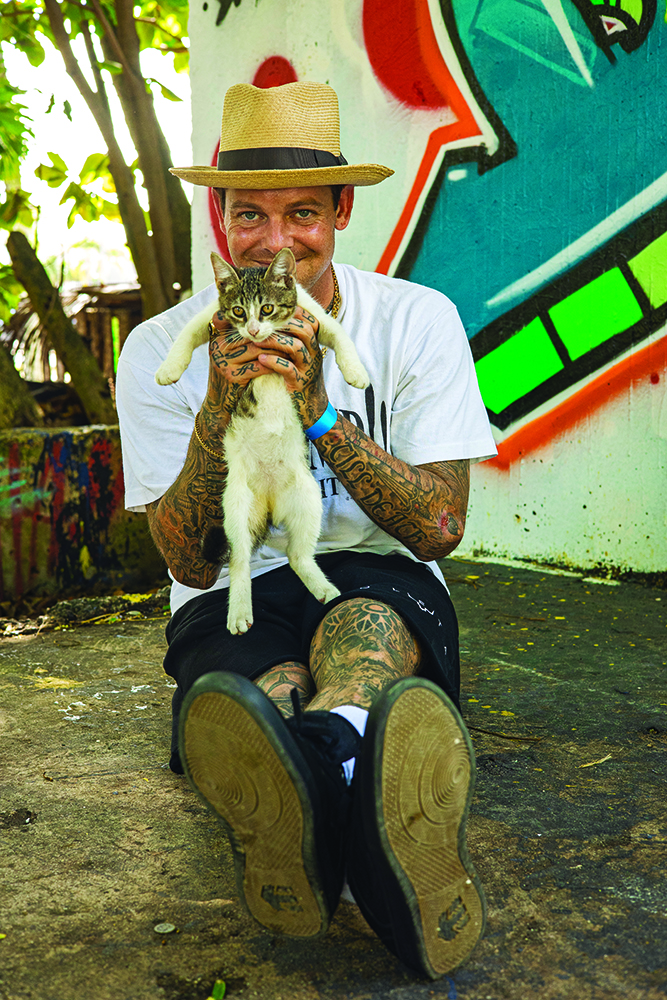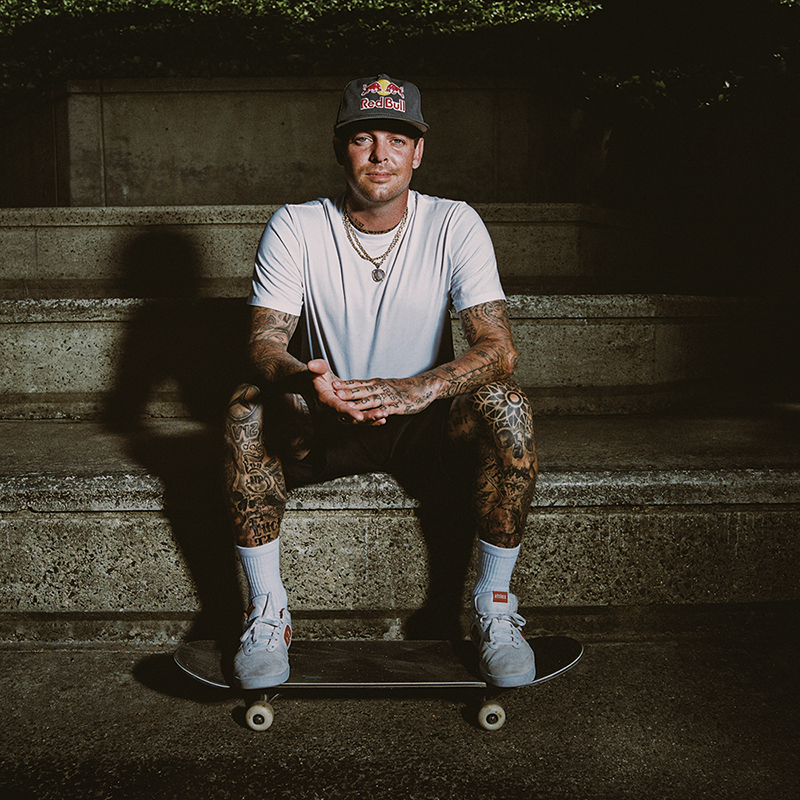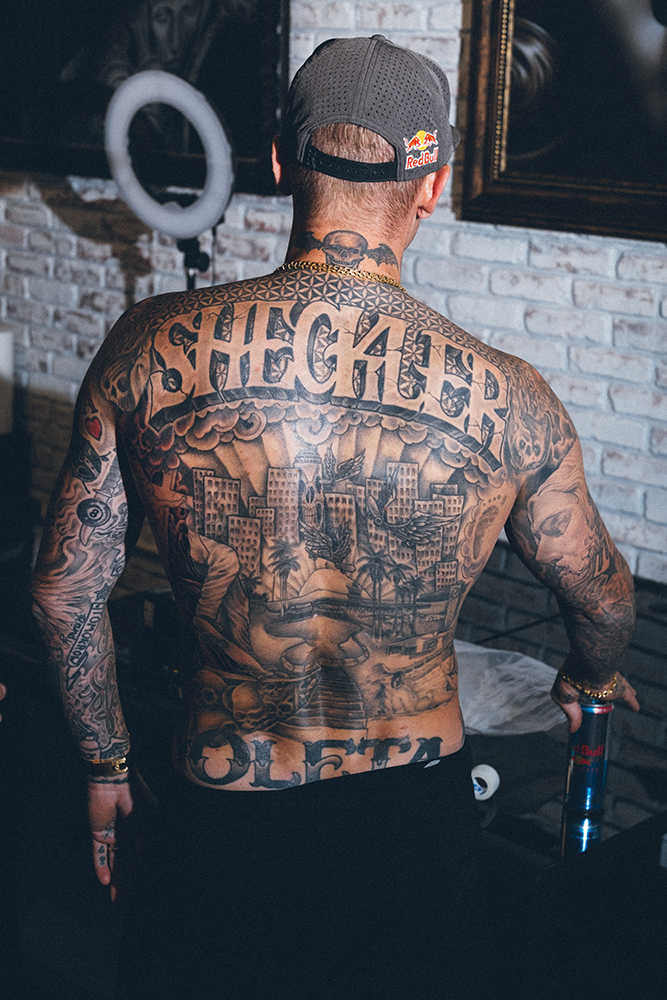
By Simon Roberts
Half-witted and less than optimally talented journalists like myself like to sling around evocative words like fertilizer on our anemic chronicles. We like to hand out “resilient,” “epic” and “transcendent” like BOGO coupons outside the new Yogurtland at the mall. Normally, this is because we struggle to find topics that really are important, interesting or evocative, so we dress up our writing with powerful words in the hopes that our readers will be swept up by the language and find our topic to be resilient, epic or transcendent. Well, this sub-optimally talented hack has somehow stumbled onto an assignment that should be littered with vivid words that resonate with my subject: Ryan Sheckler. Like it or not, resilient, epic and transcendent all fit into this guy’s portfolio. Very few athletes in the world of skateboarding, where skill, pain, fear, victory and loss collide, can claim a trophy case like his. Sheckler’s journey from skateboarding prodigy to cultural icon has been a rollercoaster ride of triumphs, challenges, and an unwavering commitment to progression. As we delve into the story of Ryan Sheckler, we witness the evolution of a skateboarder who transcends the boundaries of his sport. Sheckler has tried to capture some of his story in his first feature-length film, Rolling Away.
In the interest of fitting Sheckler’s skateboarding history into one story, we are going to skip the first decade of his life, least we run out of room in this feature. Suffice it to say, by the time he turned seven, Sheckler was already showcasing a level of skill that belied his age, capturing the attention of the skateboarding community and laying the foundation for a remarkable career. Before Sheckler was out of elementary school, he had already been featured in Big Brother Magazine, had product sponsors in Etnies and Oakley, and was an original member of the Almost Skateboards team. Almost Skateboards co-founders Rodney Mullen and Daewon Song had a big influence on Sheckler and his teammates that included Chris Haslam and Greg Lutzka. Fast forward to the ripe old age of 13, and Sheckler turns pro with a little push from World Industries. As if he felt the need to establish his street cred with the pro skateboard scene, Sheckler would go on a winning rampage, taking home first place at Gravity Games (Street), Slam City Jam (Street), The Vans Triple Crown (Street), and his first X Games Gold Medal (Park).

Fast forward again, to 2007, and a fresh faced, teen idol prototype Sheckler is the star of Life of Ryan, his own reality TV show on MTV featuring the “day to day” life of a professional skateboarder. During the same time, Sheckler leaves Almost Skateboards to join Plan B Skateboards with a “super team,” featuring the likes of Pat Duffy, PJ Ladd, Colin McKay, Paul Rodriguez and Danny Way. It is also in 2008 that Sheckler redefined what was possible with his famous “Costco Gap” trick that features an unimaginable must-see ollie and kickflip that flies in the face of the term self-preservation instinct (seriously, stop reading and Google Ryan Sheckler Costco Gap). All the while, Sheckler is in heavy rotation on MTV and continues to collect X Games medals and contest wins like I collected Ds in Mrs. Duval’s 3rd period French class. During the following years, Sheckler went on to collect 8 X Games Medals, multiple and varied contest wins and two (yes two) Nickelodeon’s Kids’ Choice Awards for the love of all things holy. I got dropped from Mrs. Duval’s 3rd period French class.
Just like my academic career, Sheckler’s life and career have not always been plain sailing weather. Sheckler, not unlike many professional skateboarders, has endured several major injuries. In his film Rolling Away, we get a front row seat for the catastrophic breaks, rebuilds and rehabs of two shattered ankles and broken back. The feature film Rolling Away, and his short LIFER, offer an inside look at Sheckler during the last few years of injury, doubt, rehabilitation, recovery and rebirth. I had the chance to ask Ryan about the injuries, and what he gained from the time he had to reflect on his life. Sheckler unabashedly responded, “I saw that I was lost. I saw that I was lost in that I was going down a path that was going to either take me off my skateboard completely or lead to some sort of accident that took me out of the world. I was not clear, I was not present, and I was questioning everything about who I was and what I was doing.”

His candor continued when asked about his own addiction and the role it played in that sense of being lost. “Alcoholism for sure played a huge part in all of those thoughts. When you get stuck in an addiction like that, you get stuck in the darkness, stuck in doubt and everything that you’re doing, you start to question. So, being sober has really helped me to remain clear and remain present and understand that life is absolutely beautiful. There are going to be ups and downs, but that’s okay. That’s part of it, so that’s really what that injury and the process of healing from that injury showed me.”
Injuries and comebacks in his films show a resiliency in Sheckler that is truly admirable. That resiliency also translates into his commitment to making a trick happen in the films. When asked about some of the tricks and spots that have been featured in his films and career that seem like incredibly risky decisions, Sheckler has this to say. “Skateboarding has taught me perseverance. It’s taught me how to overcome my fears, how to deal with struggle, and how to communicate with people all over the world. Skateboarding has taught me what freedom is like. When I’m on my skateboard, I’m doing it myself. I’m not relying on anyone else to do the tricks for me or to push me down the street. It’s all on me. So, it’s really taught me a lot about self-reliance, and if I’m not willing to put the work in to learn the trick, the trick is not going to get learned, so at the end of the day it falls back on me and my willingness to want to succeed and continue to learn.”

All said and done, Ryan Sheckler has shaped skateboarding, and skateboarding has shaped Ryan Sheckler. As he has moved into a new phase, his life featuring sobriety, marriage and fatherhood, the little blonde-haired phenom continues to amaze. LIFER and Rolling Away are both worth your time, whether you are a washed-up old hack like me, or someone still charging. The lessons in humanity and the progression of a sport through the lens of one of its greats is fascinating.






